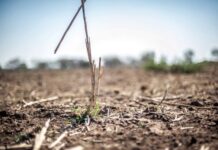The University of Exeter Business School is working with more than 40 other institutions as part of a major EU-funded project worth nearly 10 million euros.
The project, ‘Diverfarming’, aims to develop and test different cropping systems to increase land productivity and crop quality, whilst reducing machinery, fertilisers, pesticides, energy and water use.
The most recent research from this project to feature Exeter has shown that two-levels of contracts should be put in place to support crop rotation and sustainable farming. The first level of contract is specifics for farmers whilst the second is between stakeholders within a partnership.
Stefano Pascucci, Professor in Sustainability and Circular Economy, said: “Our work has shown that understanding the support we need to give to farmers and stakeholders to support sustainable farming keep fields healthy and people fed. Having two levels makes each contract less complicated and easier to follow for all parties involved. With this type of multi – stakeholder partnership, the implementation of crop rotation and other sustainable management practices could be effective, achieving a more sustainable and regenerative agricultural system throughout Europe.”
The study worked with researchers from Wageningen Univeristy in the Netherlands; Tuscia University in Italy, and the Barilla Sustainable Farming Group, which promotes a partnership between supply chain partners to adopt and diffuse sustainable practices.
The research team recommended a two level approach to implement the crop rotation system that cycles wheat crops, sugar beet, rapeseed, and sunflower.
The first level is a contract to involve farmers with the benefits of crop diversification, including rotation practices such as price, quantity, quality, amount of land, number of years, and locations. The second refers to the collaboration between the stakeholders in the partnership seeking to integrate their supply chains, and the develop the contracts that can be offered to farmers.Diverfarming is a project financed by the Horizon 2020 Programme of the European Commission, led by the Polytechnic University of Cartagena featuring 40 institutes across eight different countries. It focuses on the challenge of “Food Security, Sustainable Agriculture and Forestry, Marine, Maritime and Inland Water Research and the Bioeconomy.








